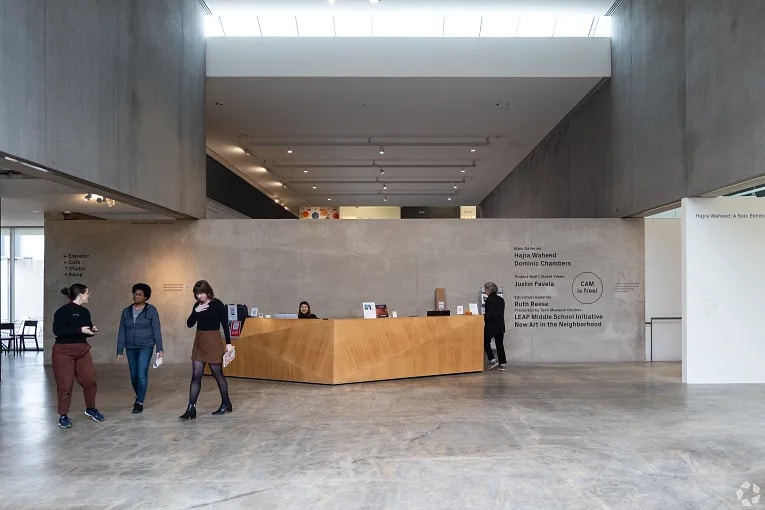CAM Reconciliation: Ensuring Fairness in Shared Property Costs

What is CAM Reconciliation?
CAM Reconciliation is the process landlords use to compare the estimated Common Area Maintenance (CAM) charges paid by tenants throughout the year with the actual expenses incurred. The goal is to ensure that tenants are paying their fair share of the costs associated with maintaining shared spaces like parking lots, lobbies, and restrooms.
CAM fees cover the costs of maintaining shared spaces in a commercial property, such as lobbies, parking lots, and restrooms. These fees are typically passed on to tenants as part of their lease agreement, ensuring that all occupants contribute to the upkeep of common areas.
At the beginning of the year, landlords estimate these CAM charges based on past expenses and anticipated costs. Tenants then make monthly payments toward these estimated charges. At the end of the year, the actual costs are calculated. If the estimated payments were too high, the landlord refunds the difference to the tenant. If they were too low, the tenant must pay the balance. This reconciliation ensures transparency and fairness in managing shared property expenses.
The CAM Reconciliation Process
1. Estimate CAM Charges: At the start of the year, landlords estimate the costs for maintaining common areas, based on historical data and projected expenses. These estimates determine the monthly CAM charges billed to tenants.
2. Collect Monthly Payments: Throughout the year, tenants pay their share of the estimated CAM charges as part of their monthly rent. These payments are based on the tenant's pro-rata share, typically tied to the square footage they occupy.
3. Calculate Actual Expenses: At the end of the year, landlords tally up the actual expenses incurred for maintaining the common areas. This includes costs like landscaping, security, and repairs.
4. Compare and Reconcile: Landlords compare the actual expenses with the estimated payments collected. If the actual costs are lower than the estimates, tenants receive a refund for the overpayment. If the costs are higher, tenants are billed for the difference.
5. Provide a Detailed Statement: Landlords issue a detailed statement to tenants, outlining the actual expenses, the estimated payments, and any adjustments that need to be made.
Importance of Accurate Record-Keeping and Communication
Accurate record-keeping is crucial in this process to avoid disputes and ensure that all expenses are accounted for correctly. Landlords must maintain clear and detailed records of all CAM-related expenses. Additionally, open communication between landlords and tenants helps prevent misunderstandings and ensures that any discrepancies in the reconciliation process are quickly resolved. This transparency fosters trust and contributes to a positive landlord-tenant relationship.
Common Challenges in CAM Reconciliation
Varying Lease Terms
Accurately calculating CAM charges can be difficult because lease agreements vary widely. Each lease may include different terms regarding what expenses are covered, how costs are allocated, and whether there are caps on certain expenses. This complexity requires careful review to ensure that CAM charges are calculated correctly for each tenant.
Potential for Disputes
Disputes between landlords and tenants over CAM charges are common, especially when there are misunderstandings or errors in calculations. Tenants might feel they are being overcharged for certain expenses, while landlords may believe they have correctly applied the lease terms. Effective communication and transparency are essential to resolve these disagreements and maintain a positive relationship.
Importance of Understanding Lease Agreements
Understanding lease agreements is crucial to avoid overcharges or undercharges in CAM reconciliation. Tenants should be familiar with their lease terms to know which expenses they are responsible for and how their share is calculated. Similarly, landlords must apply the lease provisions accurately. A clear understanding of the lease helps prevent mistakes that can lead to financial discrepancies and conflicts.
Best Practices for CAM Reconciliation
Tips for Landlords
- Accurate Estimations: Start the year with well-researched and accurate estimations of CAM charges. Use historical data and consider any expected changes in expenses to avoid significant discrepancies during reconciliation.
- Clear Communication: Maintain open lines of communication with tenants throughout the year. Keep them informed about how CAM charges are calculated and any factors that might affect these costs. This transparency helps to build trust and reduces the potential for disputes.
- Organized Record-Keeping: Keep detailed and organized records of all CAM-related expenses. This will make the reconciliation process more straightforward and reduce the risk of errors.
Advice for Tenants
- Review Statements Promptly: When you receive the CAM reconciliation statement, review it as soon as possible. Compare the actual expenses to the lease terms to ensure everything aligns.
- Conduct a Lease Audit: Consider conducting a lease audit to verify the accuracy of CAM charges. This can help identify any overcharges or errors, ensuring that you are only paying for what you owe.
- Understand Your Lease: Be familiar with the specific terms of your lease regarding CAM charges. Knowing what expenses are included and how they are calculated will help you spot any discrepancies and protect your financial interests.
FAQ Section
How often should CAM Reconciliation be done?
CAM Reconciliation is typically conducted annually, usually at the end of each calendar year or lease period, depending on the lease terms.
What happens if there is a dispute over CAM charges?
If there is a dispute over CAM charges, review the lease agreement carefully. Tenants may consider conducting a lease audit to verify the charges. Open communication between the landlord and tenant is essential to resolve any discrepancies.
Can tenants negotiate CAM charges during lease renewal?
Yes, tenants can negotiate CAM charges during lease renewal. This is an opportunity to clarify or adjust terms related to CAM charges, such as capping certain expenses or excluding specific items.
What are the consequences of inaccurate CAM Reconciliation?
Inaccurate CAM Reconciliation can result in financial losses for landlords and disputes with tenants. If overcharges or undercharges are not addressed promptly, it can also harm the landlord-tenant relationship.
